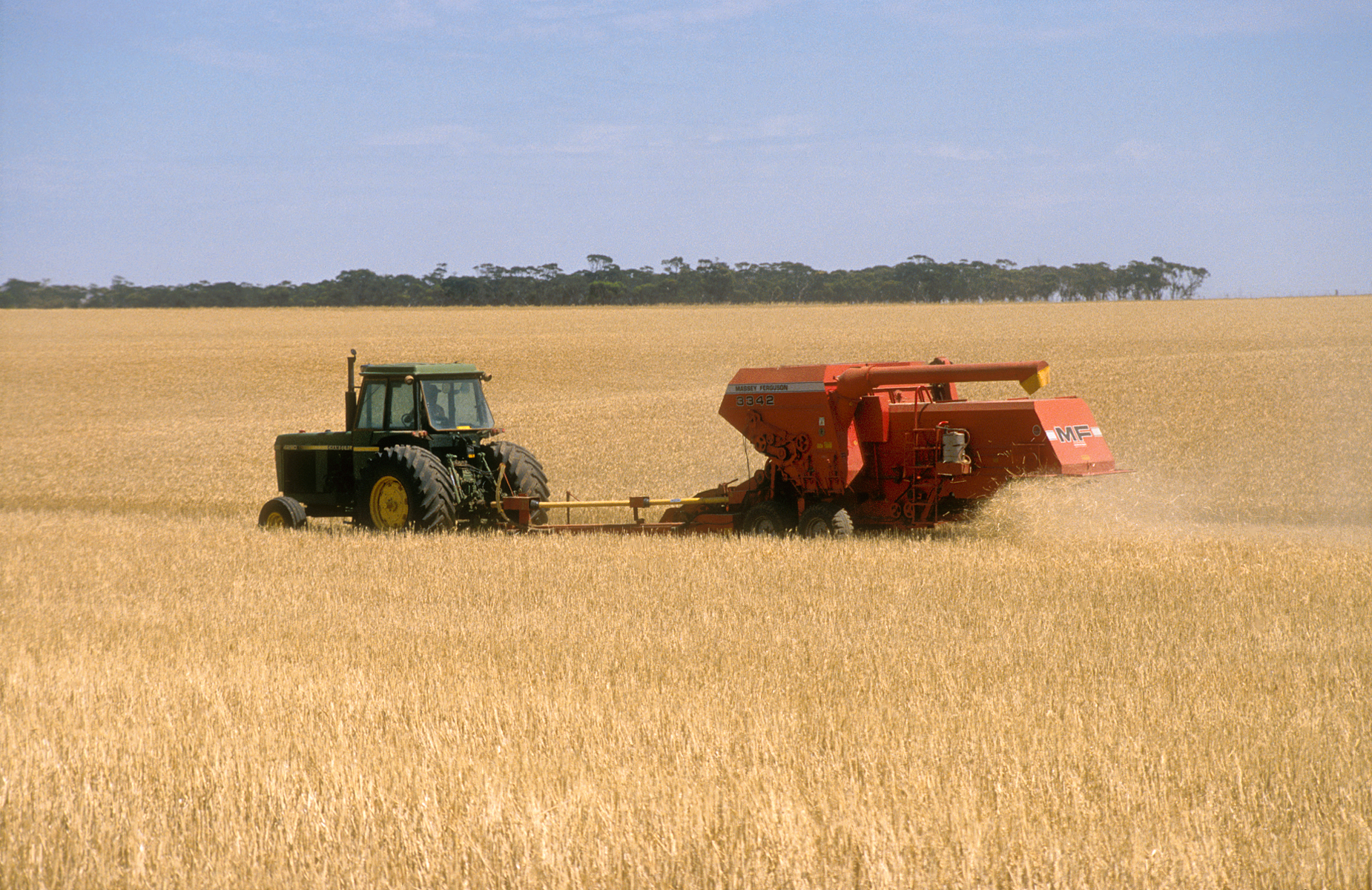A tractor and header harvesting wheat.
A fine wheat crop. Image by John Coppi
Australia is not what you’d call over-burdened with water, and yet we grow vast amounts of wheat and other grains. To continue to do so, we need to use the water we have as efficiently as possible. To do more with less.
Together with the Grains Research and Development Corporation, we started a multi-pronged project to increase the water use efficiency of grain production in Australia. And it worked so well that two of our scientists, James Hunt and John Kirkegaard, have just shared a Eureka Prize for it.
Their research has shown that it’s possible to increase the long term average winter crop yield, without increasing input costs. This would lift the average Australian wheat yield by around 25 per cent across all regions. They have also shown an increase in the long term average yields of winter grain crops, including barley and canola.
To make sure they covered all types of climate and soil conditions, they worked with 16 regional grower groups and research institutions across Australia, from the WA Sandplain to Tasmania.
They studied the many factors that influence water use efficiency and looked into the kinds of management practices that lead to more efficient use of water.
Instead of looking at a single crop or a single paddock, the research focussed on the capacity of the whole farm, and then assessed the farm’s potential for production and profitability, as well as the risks that might be associated with a change in the water use regime.
Some of the results returned big numbers. Improved summer fallow management, including weed management and stubble retention can lead to a 60 per cent increase in grain yield. The use of a legume crop after two consecutive grain crops can lead to increases in a range between 16 and 83 per cent.
The results also revealed that matching nitrogen supply to the soil type produce yield increases of up to 91 per cent.
In a world that needs to be fed, these are important findings. If we can do more to work to our conditions, it’s an all-round win.
So big congratulations to James and John, for making less more.



23rd September 2014 at 1:59 am
As you have said on the article above, we look unto and we are mesmerized by the works that are being done in your country in agriculture field. Even one of my friend from my place came years before to come and work as a farmer in the grape field in your country. As far as I notice I see a lot of migrants from Malaysia are targeting to reach Australia as their new living place. I would like to emphasise your hardwork on searching MH370.
On Fri, Sep 12, 2014 at 10:06 AM, News @ CSIRO wrote:
> Virginia Tressider posted: ” Australia is not what you’d call > over-burdened with water, and yet we grow vast amounts of wheat and other > grains. To continue to do so, we need to use the water we have as > efficiently as possible. To do more with less. Together with the Grains > Res”